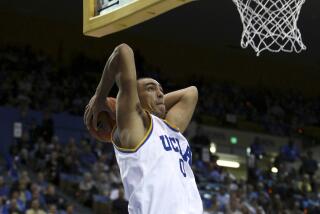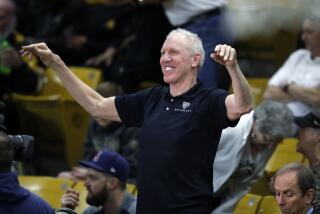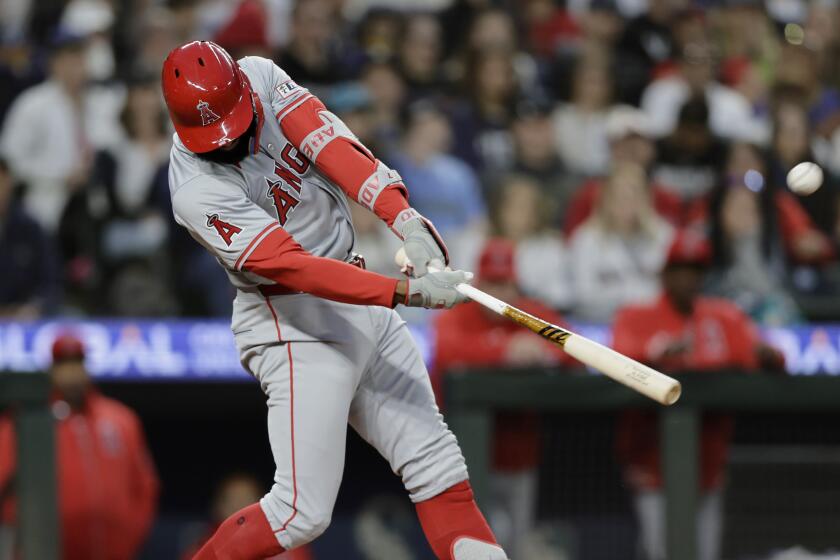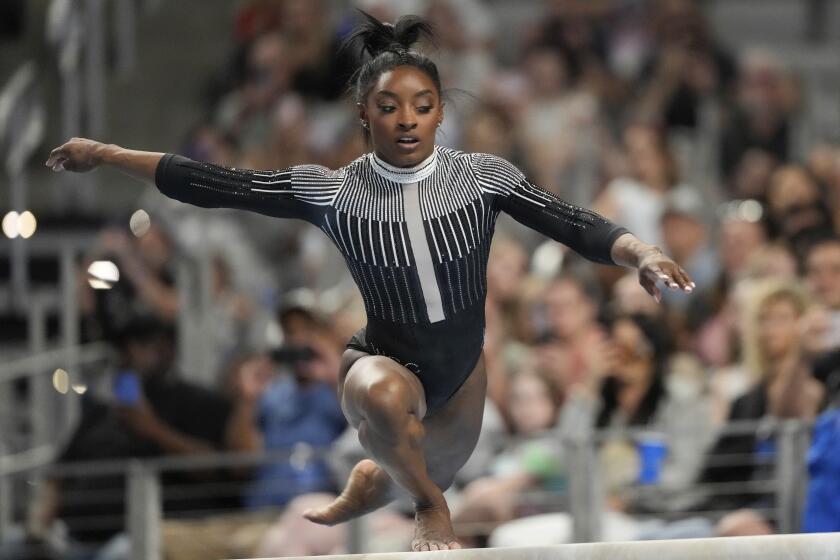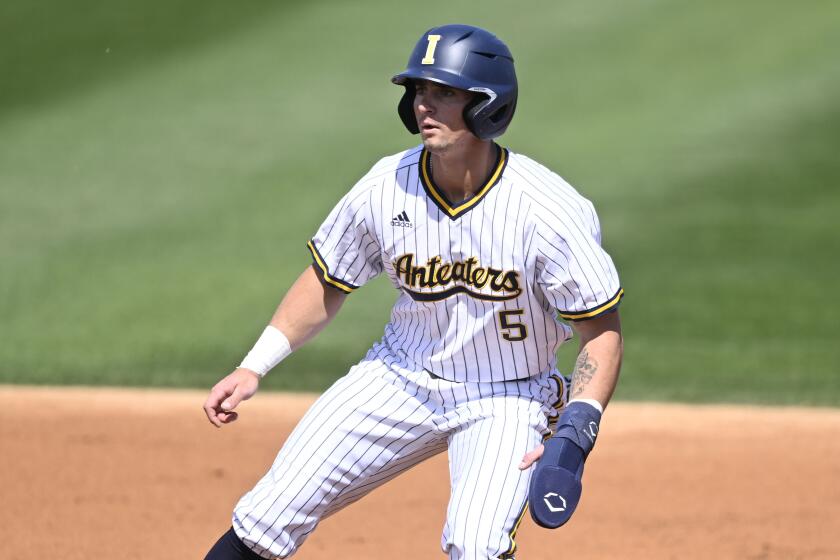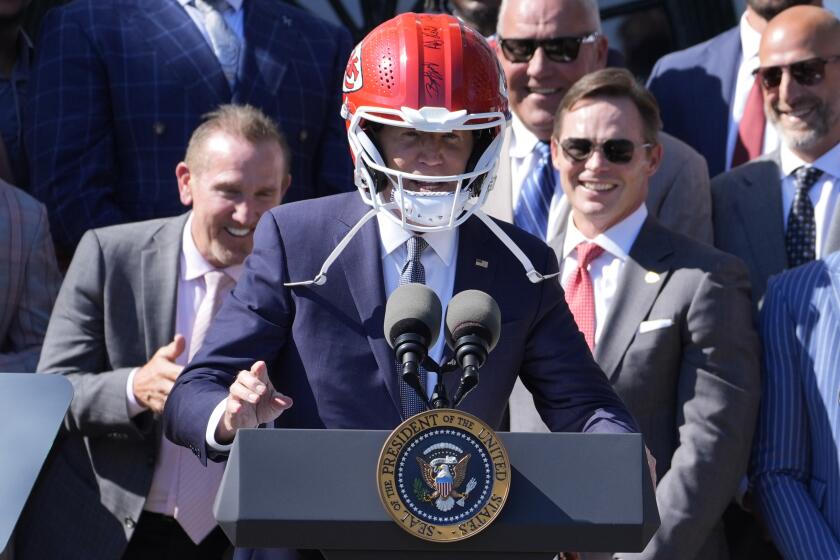Martin Won’t Be Forgotten
At least he will have more time to follow college football now, mainly the Oregon Ducks in his hometown of Eugene, or Stanford, where he went to school and earned a degree in economics 10 years ago.
What Casey Martin is leaving out of his life is to play the pro golf tour, which is really all he ever wanted to do, withered leg and all, through drawn-out legal battles, a faceoff with golf’s establishment, unwanted appearances in the court of public opinion and a very thoughtful public reminder that having a disability doesn’t mean you can’t have a dream.
Martin didn’t make it through the first round of the PGA Tour qualifying school last week at San Juan Oaks Golf Club in Hollister, Calif., so he said he’d had enough. At 33, he chose to end his career as a touring pro, retaining the option of competing, from time to time, just not as part of the daily grind.
So you can finally close this chapter in Martin’s saga, a combination of will, honor, perseverance, skill, humor, conflict and humanity that golf has never witnessed before and might never see again.
In early 1998, in a case that involved the Americans With Disabilities Act, a U.S. judge in Oregon ruled that Martin had the right to ride a cart while playing PGA Tour events as an accommodation for a birth defect in his right leg, a rare circulatory disorder called Klippel-Trenaunay-Weber Syndrome.
The problem with this illness is that the blood flows to the lower leg, but pools there and doesn’t flow back as it should. It causes extreme swelling, internal bleeding and pain. Since Martin was a baby, he has worn a long elastic stocking that stretches from his toes to the top of his leg that compresses his leg and reduces the amount of blood that flows into it. Martin’s doctors told him that too much stress on his brittle leg could cause it to break and force it to be amputated.
Martin fought through the pain so he could keep playing golf, although the PGA Tour certainly didn’t make it easy for him. Lawyers for the tour contended that allowing Martin to ride in a cart would give him an unfair competitive advantage and take away the fundamental aspect of athleticism and stamina.
Witnesses for the tour testified they were fretting about the fairways being overrun with disabled golfers in carts, that a ruling for Martin would open the floodgates and change the game forever.
More than seven years later, Martin is the only entity that has changed forever.
At the time of the court ruling, his lawyer, Martha Walters, said Martin only needed a ride to the tee, not a 50-yard lead. She also pointed to Martin’s atrophied right leg and offered an opinion.
“You cannot look at that leg and believe for one instant that Casey Martin would have a competitive advantage,” she said.
His brother, Cameron, once told a story about how he would be lying in his bed, trying to go to sleep, but could not because Casey was crying out in pain in the adjoining bedroom.
True to his nature, Martin never once complained about his leg or how much it affected his golf, although it surely did. He learned to develop a new driving technique in which he sort of dragged his leg into the swing and he remained one of the longer hitters on the Nationwide Tour.
But that’s not the PGA Tour, the goal line for a pro golfer and a place that Martin reached in 2000. He didn’t make enough money to keep his card, though, and he has been trying to get back, playing in the lower-echelon Nationwide Tour ever since. His disappointing results and how his leg deteriorated convinced Martin he needed a change in his career path.
Said Martin, in typical self-deprecation: “Yeah, I’ve played like a clown for four or five years.”
He played nine Nationwide Tour events this year and made one cut. He did have a sponsor’s exemption into the PGA Tour’s AT&T; Pebble Beach Pro-Am, made the cut, and earned $10,547.
For his part, Martin never voiced any bitterness that the PGA Tour had fought him in court and occupied so much of his time with legal matters that could have been better spent working on his game for the months of what was certainly his best opportunity to succeed.
That ruling for Martin in Eugene, the third time the PGA Tour’s position had been rejected, by the way, was a landmark decision because it was the first case that invoked federal disabilities laws for an athlete to compete in a major sport.
It was a public role that Martin reluctantly embraced. He did not necessarily want to be a pioneer, but he was proud to represent some kind of role model to the disabled.
If only the PGA Tour had felt the same way and instead of pushing away the disabled, embraced them instead, saying we’ll take anybody who’s good enough.
Casey Martin was good enough. He was the low amateur at the 1998 U.S. Open at the Olympic Club and he even won a Nike Tour tournament that same year while under a temporary restraining order that allowed him to ride a cart. Martin will go down as a winner, in a lot of ways, and certainly not just as the “guy in the cart,” which is about the only legacy he couldn’t tolerate.
As for future plans, Martin says his options are open. He might coach golf or design courses or use his business contacts for something in Eugene. A Stanford economics degree must mean something, and so does the pro golf career of Casey Martin, who might be out of sight if he’s giving up the tour life, but let’s hope he remains firmly and clearly in our minds every time he drives through.
More to Read
More to Read
More to Read
Get our high school sports newsletter
Prep Rally is devoted to the SoCal high school sports experience, bringing you scores, stories and a behind-the-scenes look at what makes prep sports so popular.
You may occasionally receive promotional content from the Los Angeles Times.

